SCOTUS rejects S.C. request to enforce anti-trans restroom policy against trans student
The boy, known as John Doe, will be allowed to use the boys' restroom while litigation proceeds. Also: About the administrative stays Chief Justice Roberts is giving Trump.
On Wednesday afternoon, the U.S. Supreme Court refused to step in, for now, in a dispute over one transgender student's bathroom access in South Carolina.
The U.S. Court of Appeals for the Fourth Circuit had issued an injunction pending appeal protecting the student’s restroom use. Applying established precedent in the circuit, the appeals court order blocked the state from enforcing an anti-trans restroom policy embedded in a budget bill.
South Carolina, however, asked the Supreme Court to block that injunction and allow it to enforce its anti-trans restroom policy against the student, called John Doe in court filings, as covered previously at Law Dork.
The Supreme Court denied that request on Wednesday. In the brief, unsigned order, the court nonetheless went out of its way to make clear the limits of the order.
“The denial of the application is not a ruling on the merits of the legal issues presented in the litigation,” the order stated. “Rather, it is based on the standards applicable for obtaining emergency relief from this Court.“
The standards involve consideration of the likelihood of success, the chances the court would grant review of the issue, the harm faced by parties through action or inaction, and the public interest. The court did not explain further which of those or in what ways they figured into the court’s decision to deny the state’s request.
Justices Clarence Thomas, Sam Alito, and Neil Gorsuch noted that they would have granted South Carolina’s request.
This is not the end of the case at all. As the student’s lawyers noted, the state will be able to make its arguments below in due course — including an argument that the precedent relied upon by the appeals court should be reconsidered in light of, or has been altered by, the Supreme Court’s decision in U.S. v. Skrmetti.
With Wednesday’s order, the justices — at least a majority of them — appeared to say, “Yes, that is how it should go.”
For now, though, South Carolina cannot stop Doe from use the boys’ restroom.
We need to talk about the shadow docket’s “administrative” stays
The quick ruling from the justices in the South Carolina case came in the aftermath of Chief Justice John Roberts having issued “administrative stays” in two other shadow docket requests before the justices — both of which relate to President Donald Trump’s powers.
Both administrative stays — though seen as temporary and generally granted to allow the full court time to give proper consideration to a request — had immediate effects and raise key questions about how, when, and under what situations an “administrative stay” should or should not be granted.
Do those ordinary stay factors — likelihood of success, likelihood the court would grant review, irreparable harm, public interest — even matter?
On Monday, Roberts issued an administrative stay temporarily blocking a district court’s order barring the Trump administration from enforcing Trump’s firing of Rebecca Slaughter as a member of the Federal Trade Commission.
The problem here: The lower court rulings were based on the fact that the Supreme Court — 90 years ago — decided that the statutory protections against the president firing FTC members are constitutional. That is Humphrey’s Executor — the case that we’ve been hearing about as the cases over other firings progressed through the courts.
In a filing opposing the administrative stay requested by DOJ, Slaughter’s lawyers wrote, “This Court should not grant an administrative stay where the court below simply ‘follow[ed] the case which directly controls,’ as it was required to do.“
And yet, with no full briefing or argument and via Roberts’s “administrative” action, Slaughter is out for now. The injunction is stayed. There is an effect.
Although just an “administrative stay,” Roberts’s action raises an important question: Could there ever be a circumstance in which the Trump administration would not get an administrative stay?
If a single justice can grant an administrative stay in a case in which the outcome would require overturning or at least eviscerating a 90-year-old precedent, when would an administrative stay not be justified? There is no likelihood of success under current precedent. How can there be any relief — whether called administrative or anything else — from a single justice?
On Tuesday, Roberts went for it again. This time, he issued an administrative stay temporarily blocking the latest preliminary injunction issued by U.S. District Judge Amir Ali in the foreign aid funding case.
Issued in response to a DOJ request, this administrative stay was also opposed, this time by the groups suing over the cuts. In their opposition, they explained why an administrative stay would have a particularly stark, substantive effect here.
“The injunction on appeal relates principally to the Further Consolidated Appropriations Act of 2024, in which Congress directed that certain foreign-assistance appropriations ‘shall be made available’ by September 30, after which the funds will expire,“ they explained. “[A]n administrative stay may effectively moot this appeal and result in the impoundment of billions of dollars in funds, given the government’s representations that immediate preparatory steps are necessary to be able to obligate funds by the deadline.“
On Tuesday, with no reasoning — because it’s only an “administrative stay,” after all — Roberts nonetheless granted that administrative stay.
This administrative stay raises questions about irreparable harm. If an administrative stay could moot an appeal by running out the clock on the funding — not so incidentally, the very thing that Trump is seeking to do with his “pocket rescission,” which Ali found is likely illegal — how is it administrative at all?
The groups seeking foreign aid funding before the September 30 deadline certainly don’t see this as an “administrative” ruling.
With two different “administrative” stays issued in the first two days of this week, Roberts made clear that the loosely defined practice is often not “administrative” in its effects at all.
The current practice — though by no means its only problem — is damaging to the Supreme Court and whatever credibility it has remaining.
The Supreme Court needs to make more clear what the standards are for granting an “administrative stay.” Going forward from there, then, the justices will need to be more transparent about why they are granting such relief, temporary though it may be, in any particular case.



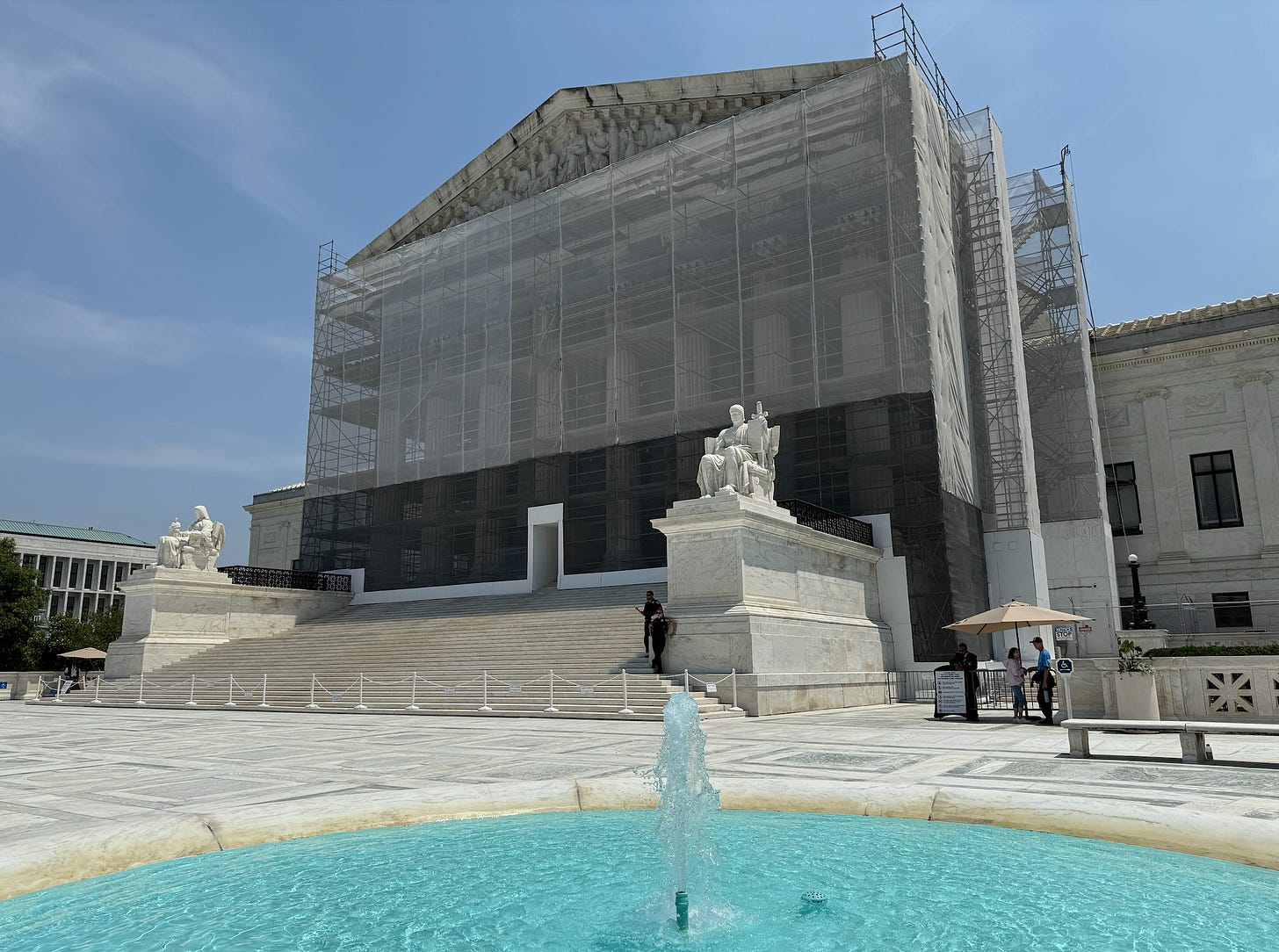
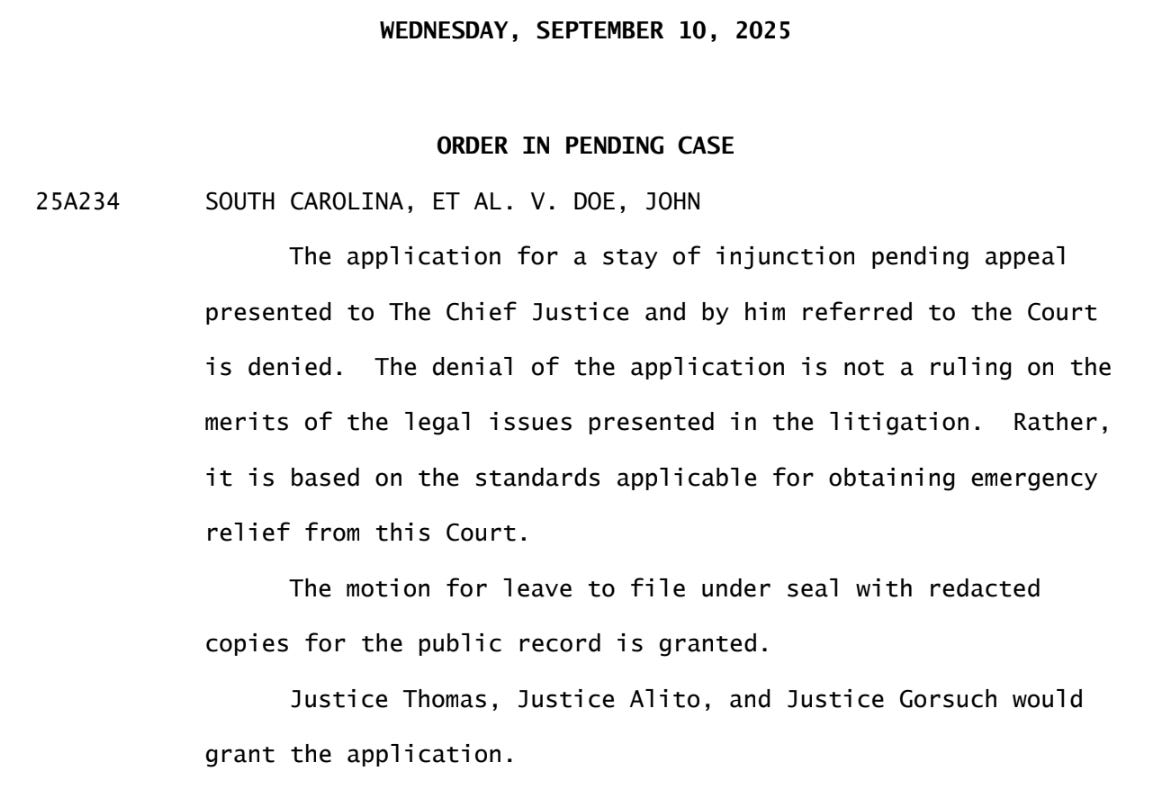
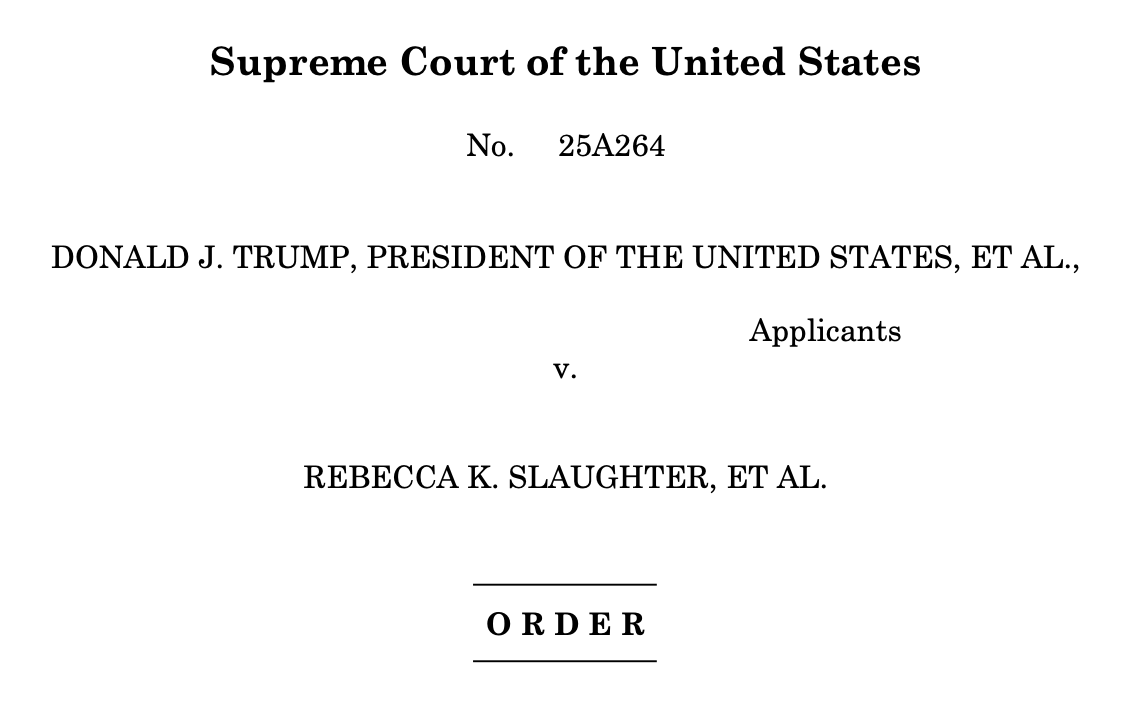
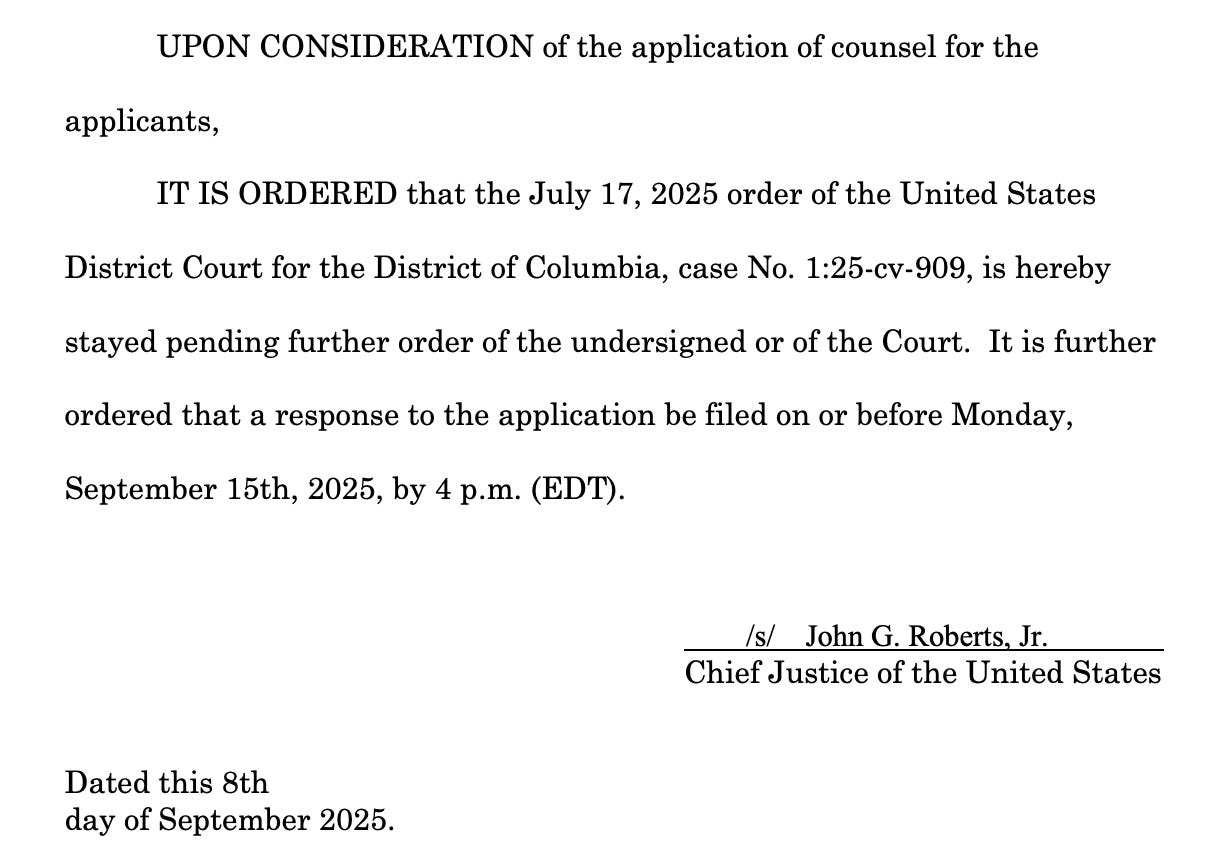
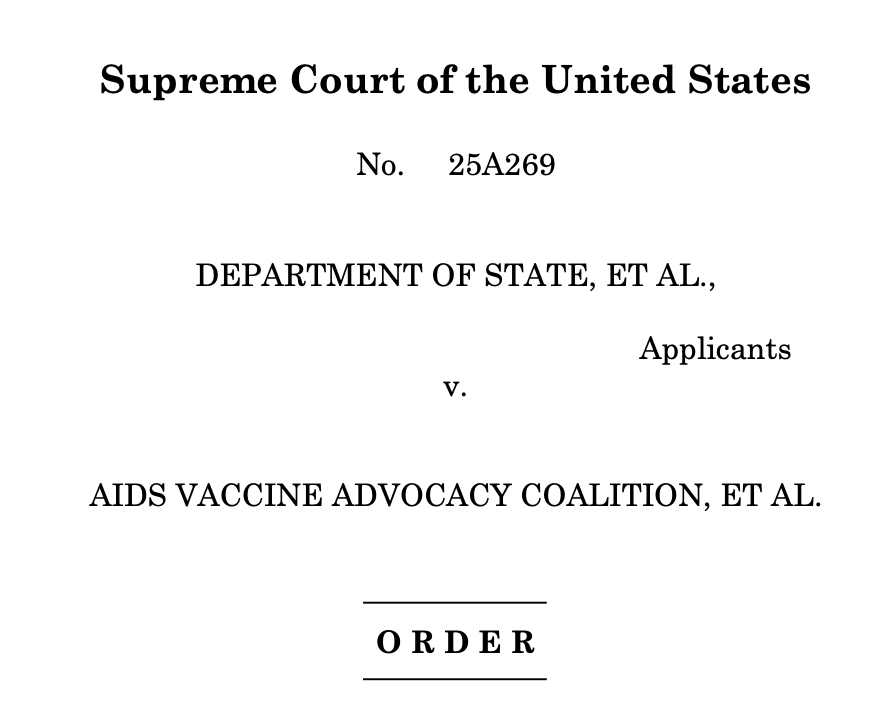
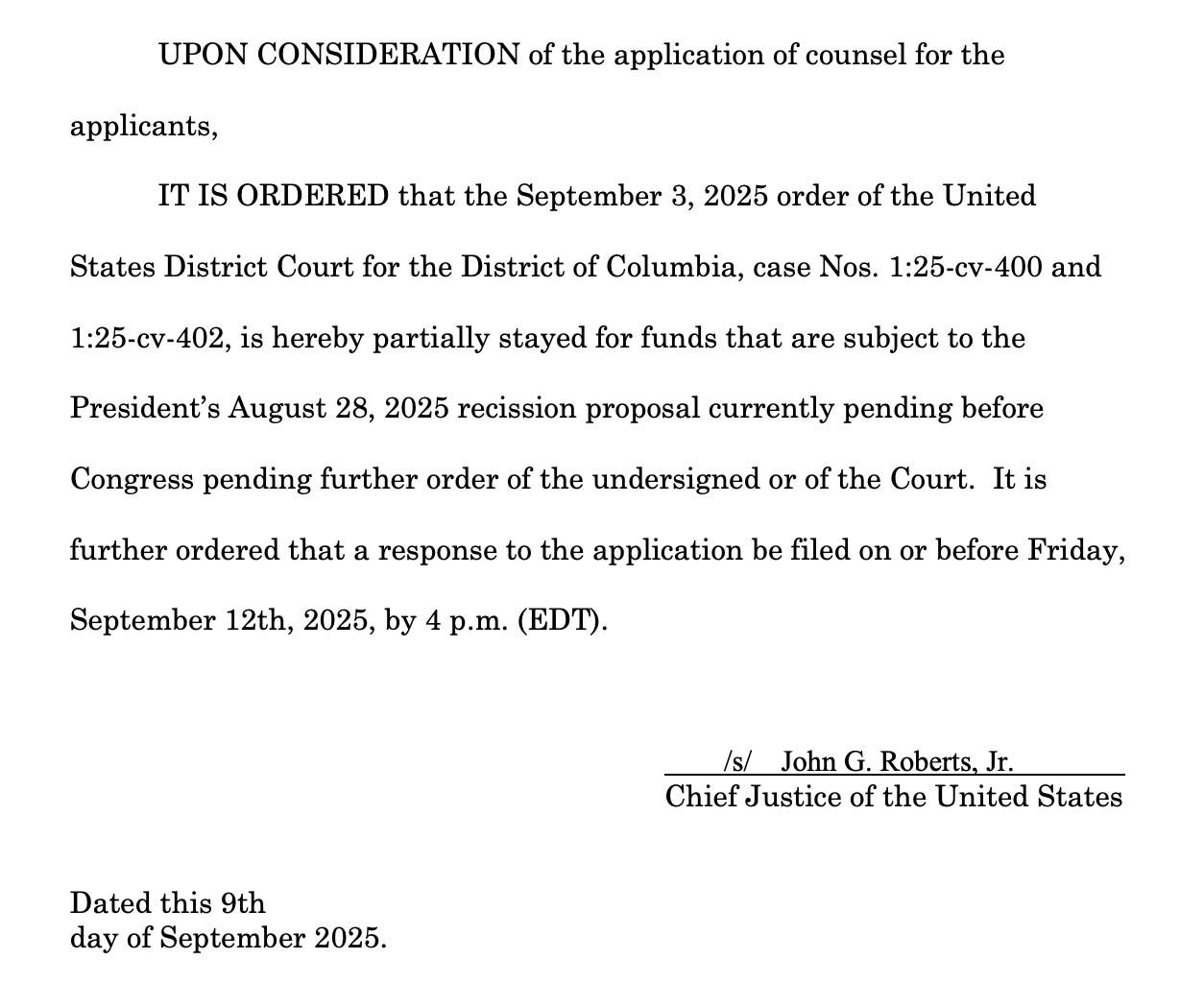
"Emergency" or "Shadow" Docket orders were discussed in Stephen Colbert's interview with Justice Sotomayor last night, including the lack of a reason. Helpful for the national conversation, perhaps.
I wonder: Don’t these “administrative stays” foreshadow (execrable pun intended) a bias on the Chief Justice for Trump’s actions? If he accepts Trump’s word (without evidence) invariably, then how can he not favor Trump in the future invariably?